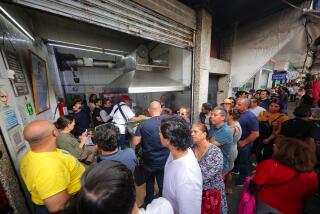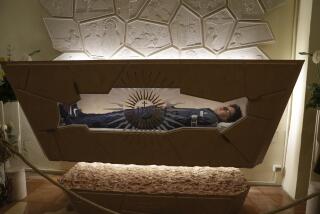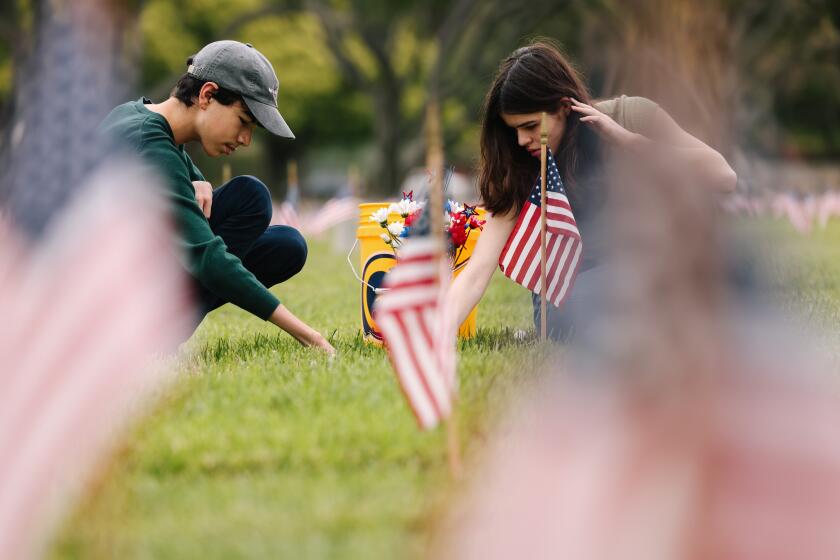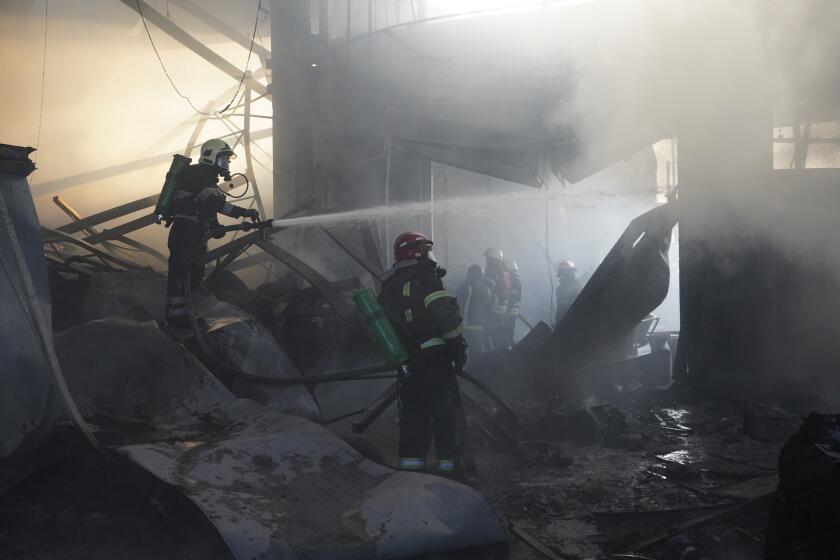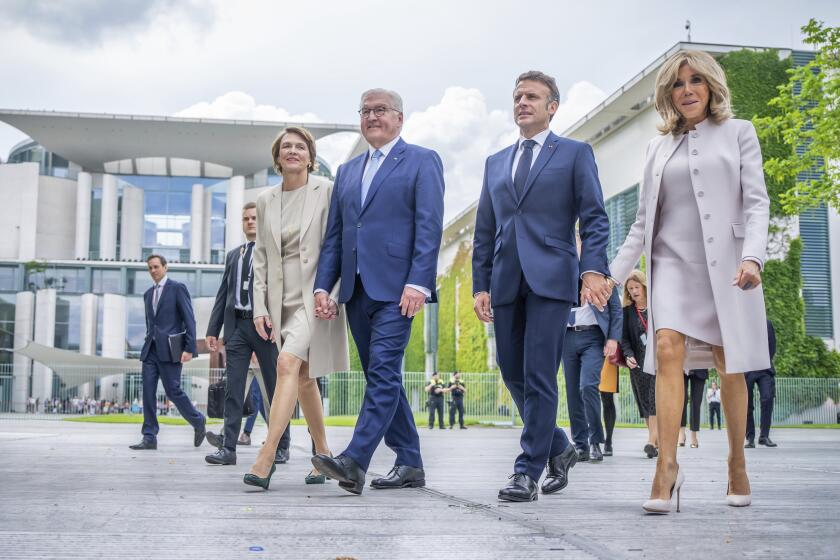Five in Paramilitary Unit Go on Trial in Serbia
A high-profile trial opened here Tuesday against five members of a Serbian paramilitary unit accused of killing six unarmed Muslim prisoners who had been caught fleeing the Bosnian town of Srebrenica in 1995.
The killings were captured on videotape by a unit member and made public this year, shocking Serbs who had long denied that such crimes occurred during the 1990s wars in the former Yugoslav federation.
The trial is being held by a recently established Serbian war crimes court. Specially designated courts in Serbia and Montenegro, Croatia and Bosnia-Herzegovina now handle all new allegations of war crimes committed during the 1990s, when the former Yugoslav federation violently broke apart in four brutal conflicts of which the Bosnian war was the bloodiest.
The International Criminal Tribunal for the Former Yugoslavia in The Hague, which is trying former Yugoslav President Slobodan Milosevic, has completed the indictment stage of its work and is limited to prosecuting those cases it has already begun.
This is the second major case to be tried by Serbia’s war crimes court and by far the most closely watched because of the publicity surrounding the video, which was widely aired in June. The proceedings were the top of the news Tuesday on Serbian radio and television.
Although the shootings are clearly seen on the video, the unit’s commander, Slobodan Medic, 39, denied that his forces killed the Muslims. He said prisoners had never been shot because his unit “had never caught any prisoners.”
However, Medic was clearly perturbed that the incident had been filmed and told the court that the cameraman “would not be eating bread anymore” because he would have “killed him like a rabbit” if he had known the filming was occurring.
“I did my job properly. If I had not, I wouldn’t be alive today. I only fulfilled my national obligations,” he said.
None of the defendants entered a plea, not required in the Serbian court system.
The day began with a somber scene in which about 20 Bosnian Muslim women in head scarves, many of them relatives of the men and boys whose deaths were captured on the video, walked across one of Belgrade’s main avenues to enter the courthouse as witnesses. At the same time, police vans drew up carrying the indicted members of the Scorpion unit, most of them wearing black leather jackets.
Nura Alispahic, a Bosnian Muslim who learned how her son died when she recognized him on the video as it was broadcast, wept as she spoke, saying, “People who could kill my child like that should get a hundred years.”
She said she was not afraid to come to Belgrade, the capital of Serbia and Montenegro, to testify although she knew that some Serbs, most of whom are Orthodox Christians, harbored animosity toward Muslims. “They can kill me, but there is nothing more that I can lose,” she said. “All I want is to face these criminals ... to face the people who could kill a child like that.”
A spokesman for the prosecutor told Serbian state television Tuesday night that the prosecutor would not rely solely on the video to make his case, but would call at least “12 witnesses and present extensive additional evidence.”
Human rights activists have given the court high marks for fairness and speed, while cautioning that it has yet to face the tough test of indicting and trying individuals high in the chain of command, some of whom still hold powerful positions in the Serbian police or army.
In a case completed a little more than a week ago that dealt with the 1991 killing of at least 200 Croat civilians seized from a hospital in Vukovar, the judge “cared about the evidence, the law and nothing more,” said Natasa Kandic, director of the Humanitarian Law Center and a well-known human rights activist in Serbia.
In that case, 14 of 16 Serbs accused in the massacre were sentenced to prison terms, with eight receiving the maximum 20 years for war crimes. There is no death penalty in Serbia.
The fall of Srebrenica, a town that had been declared by U.N. peacekeepers a safe haven for Muslims expelled from surrounding villages, was the biggest atrocity of the Bosnian war, resulting in the deaths of more than 7,000 men and boys at the hands of Bosnian Serb forces.
*
Times staff writer Rubin reported from Vienna and special correspondent Cirjakovic from Belgrade.
More to Read
Start your day right
Sign up for Essential California for news, features and recommendations from the L.A. Times and beyond in your inbox six days a week.
You may occasionally receive promotional content from the Los Angeles Times.
